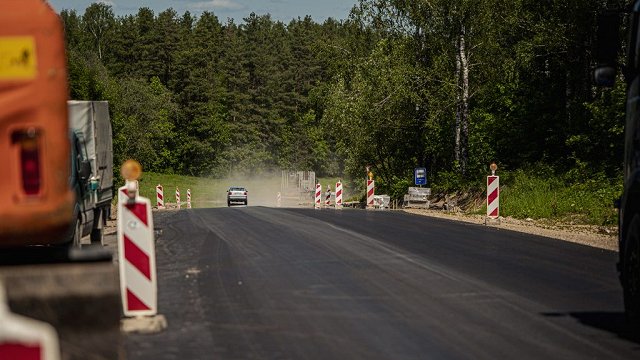"We're starting to play in the big leagues," Toms Torims, head of CERN's national unit in Latvia, told Latvian Television.
Scientists are experimenting to discover new physics phenomena and are producing complex, large volumes of data, which will now also be processed in Latvia. Five Latvian educational and scientific institutions have pooled their computing or supercomputing powers, which will be used by CERN for scientific calculations.
"CERN's data [..] is as big as all of Google's data combined. You can imagine the sheer volume of data," explained Torims, adding that the world is becoming increasingly data-rich. "We're talking petabytes now."
In future, CERN will be able to use Latvia's capabilities for calculations and vice versa. This is foreseen in the Memorandum of Cooperation between Latvia and CERN signed by Finance Minister Arvils Ašeradens (New Unity) and Joachim Mnich, Director of Information Technology and Research at CERN.
The federated computing center "Latvia CERN CMS TIER 2" was also symbolically inaugurated by pressing a button.
"We are starting to play in the top league not only in nuclear physics, particle physics, but also in computing. This is something only industrially developed countries can do," said Torims.
"We are giving our power and our scientists will continue to tackle the mysteries of the Universe, to understand how elementary particles behave, the laws of physics," he said..
The supercomputers of Riga Technical University, University of Latvia, Rēzekne Academy of Technology, Ventspils University College, and the National Library of Latvia are connected in a common network.
"We can show that our high-performance resources are not only used for our needs. For example, when observing radio telescope data or modelling comet activity, it is also useful for CERN," said Karina Šķirmante, researcher at Ventspils University College and the International Centre for Radio Astronomy in Ventspils.
In Riga and the regions, supercomputers will be able to perform calculations on elementary particle collisions in CERN's experiment to simulate the Big Bang with the large hadron collider. The measurements seek to answer questions about the Universe and discover new physics.
"We are finally showing that high-quality things are needed not only in Riga, but also in Kurzeme and Latgale. And especially in Latgale. If we say that we want to develop industries and companies with high added value in Latvia, then this is inconceivable without big data processing," said Iveta Mietule, Rector of the Rezekne Academy of Technology.
































